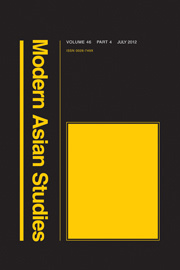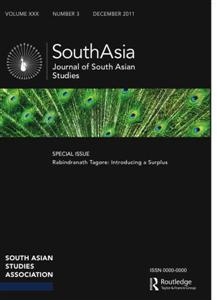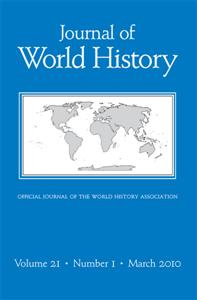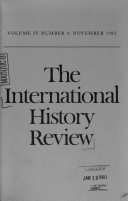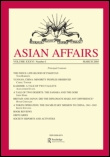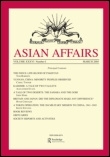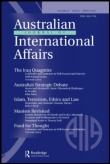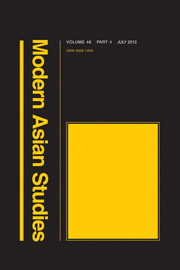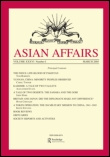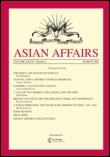The Manchuria Bridgehead: Anglo-Russian Rivalry and the Imperial Railways of North China, 1897-1902
ARTHUR LEWIS ROSENBAUM
Claremont Mens College
The Anglo-Japanese Alliance of 1902 committed Great Britain to the defense of Manchuria, an area of the Chinese Empire which the Foreign Office and Cabinet never had considered to be vital to Britains strategic or commercial interests. In the years preceding the alliance, British policy in Manchuria was weak and indecisive. The government consistently refused to run the risk of war and was genuinely concerned about the unacceptable level of tension generated by half-hearted attempts to maintain some semblance of the open door. Successive attempts to negotiate a diplomatic settlement that would provide a degree of protection for British trade while acknowledging Russias special political and economic rights were wrecked by the uncompromising views of Sergie Witte. Under these circumstances, it was only natural that Britain should give serious thought to abandoning Manchuria.
As early as 1898 British diplomats were convinced that Manchuria and probably large portions of north Chinaultimately would fall to Russia. British commercial and strategic interests, they agreed, were of limited significance and not worth a hopeless fight. Logically, Britain should have conceded Manchuria to Russia in return for concessions in the Yangtze Valley. However, logic was not the only consideration in British policy. It is true that Lord Salisburys desire to maintain the territorial integrity of the Chinese Empire and advance British commercial interests contributed to the Foreign Offices refusal to accept the implications of its own analysis of the balance of power in the Far East. However, a less tangible concern for British prestige, typified in Manchuria by the Imperial Railways of North China (I.R.N.C.), also known as the Peking-Mukden Railway, was a major factor in British policy. The struggle to control this line involved Britain in Manchuria and helped keep her there.
The I.R.N.C. was Chinas first railway and it was built by British
engineers and some British capital. Located in a strategic part of the Empire, it joined south Manchuria to Peking and the north China plain. In British hands, the line formed a barrier to the southward expansion of Russian influence. It also provided for a limited Sino-British presence in southern Manchuria and frustrated all Russian efforts to close off" Manchuria.
The battle for control of this line became a major source of Anglo-Russian tension in the years 1897-1902. Ironically, the initial decision to defend the British presence in the railway was made for reasons of pride and prestige. Strategic and political considerations that later prompted Britain to cling to the railway were discovered afterwards and were never fully appreciated. The British valued the line because they had built it and because to surrender it under pressure would be interpreted as a sign of weakness. Although the Foreign Office soon realized that the line was a useful diplomatic counter in negotiations, every discussion of the future of the company concluded that it eventually would fall to the Russians. The only questions were of timing and compensation from the Russians, but always complications prevented conclusion of a deal. Thus the British held a white elephant they could not discard and that the Russians could not ignore. And by controlling the railway, they were drawn deeper into international rivalries over Manchuria.
Chinese Strategic Planning and the I.R.N.C.
By 1895 China had only 240 miles of completed railway, running from the port of Tientsin in a northeasterly direction to Shanhaikuan. A tentative start had been made on a projected extension from Shanhaikuan through Manchuria to the Russian border. This pre-war railway system was shaped by the inability of Chinas railway planners to win support for a network designed to promote industrialization and the subsequent ascendency of strategic considerations.
In 1881 a seven-mile mining railway had been constructed at Tangshan. After the Sino-French War of 1885, Li Hung-chang and other self-strengtheners in the Board of Admiralty proposed to extend the line to improve coastal defense and stimulate industrial growth. However, segments of the bureaucracy and populace remained hostile or indifferent to the need for railways while domestic risk capital was scarce. The Chinese Railway Company (Chung-kuo t'ieh-lu kung-ssu), a merchant-managed government-supervised firm established by Li to undertake a Tangshan-Tientsin Railway, raised only Tls. 108,000 in share capital. The remaining Tls. 1,200,000 came from short-term foreign bank loans and small loans from provincial authorities. The technical know-how was provided by a corps of foreign engineers, mostly British, headed by Claude Kinder.
In 1889 Li offered the company rights to the highly lucrative Tientsin-Tungchow route in an effort to attract new investors. A powerful coalition of vested interests and political conservatives convinced the court to withdraw its support of the project.
Meanwhile, the rapid increase in Japanese and Russian power drew attention to the strategic weakness of the Chinese position in Manchuria and Korea. To meet the challenge, the government assumed responsibility for extending the existing lines from Tangshan through Manchuria to the Russian border. Despite the urgency of the situation the court acted with its customary lethargy. By the start of the Sino-Japanese War, 1894, less than eighty miles had been opened to traffic and the earthworks barely projected into Manchuria. Bureaucratic incompetence and corruption, including the diversion of forty per cent of all authorized expenditures to help finance rebuilding of the Summer Palace, prevented China from establishing a presence in southern Manchuria.
After the Sino-Japanese War, purely strategic considerations ceased to dominate Chinese railway planning. The bureaucracy came to believe that railways were the most effective means of achieving national wealth and power. First priority was given to railways likely to stimulate economic growth and operate at a profit. On 6 December 1895, the court authorized government appropriations to construct an eighty-mile line from Tientsin to Peking and ordered formation of a private company to undertake a trunk line from Peking to Hankow. The Manchurian extension, passing as it did through lightly populated regions, was ignored. Wartime debts and indemnities coupled with the fiscal weakness of the Empire had made it impossible to undertake more than two pilot programs.5
More important, the balance of power in the northeast removed the need for such a line. The recent war offered conclusive proof that Chinese power by itself was inadequate to check Japanese inroads into Manchuria. The tripartite intervention of 1895 suggested that Russian friendship was a more potent guarantee of Manchurian security than construction of a single railway. At the urging of Li Hung-chang, China concluded a defense alliance with Russia on 3 June 1896. The Russian alliance became the indispensable cornerstone of Chinese security. To secure the alliance, Li was prepared to offer Russia limited railway rights in Manchuria and abstain from independent actions in Manchuria that might antagonize Russia.6
As is well known, the Sino-Russian alliance and construction of the Chinese Eastern Railway were part of Sergie Wittes ambitious program to establish Russian economic hegemony in Manchuria and north China. Backed by their French allies and given free rein by British indifference, if not encouragement, the Russians prepared to exploit Chinas friendship. The theoretical basis of Wittes policy of peaceful penetration rested on the assumption that a grateful China would make major concessions to Russia.7 In practice, implementation of the program required a degree of forbearance and patience to overcome
Next page
